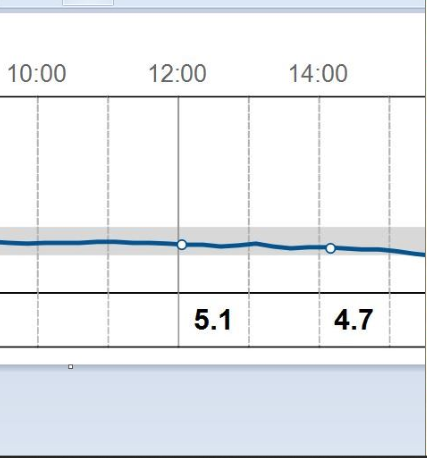This may be a dumb question. If it is i appologize. I was reading posts in here about blood sugar studies. Some of the experiments were with beef. Or , well, all the ones i read actually. So i am wondering am i not understanding what i am reading, or should i eat chicken instead?
Should people with blood sugar problems avoid beef?
Blood sugar impacts will vary from person to person. I get more of a bump in blood sugar from chicken or tofu that I do from beef but it may be different for you.
Kimberly - I think Safi has it right:
Protein does not raise blood sugar in some people, but it does in others. Even among people who have been eating ketogenically, some do find that their blood sugar goes up in response to protein - a few people on this forum have testified to that. It really does appear to vary, individual by individual.
Yeah - I see that more & more as people (diabetic or otherwise) start testing. Very interesting & shows the value of monitoring your blood glucose, if only for a while.
A properly sized serving of red meat (beef) 3-to-4 oz. has the lesser impact on blood sugars than any other kind of protein as long as it is not a processed meat (cooked in polyunsaturated vegetable oils, smoking, curing, salting, or with the addition of chemical preservatives)!
Takes a long-while for protein to process into glucose (gluconeogenesis) so one might mistakenly think the protein they just ate is showing up on the glucose meter when actually, it was the protein they ate 2 to 10 days ago which is not a bad thing because it provides a healthy level of glucose if the liver thinks the brain needs it and brain is demanding more energy from the internal organs. Additionally eating too much protein everyday and no intermittent fasting or protein cycling[1] and your burning fat more rapidly than catabolizing your own[1] skin tissue; then you could or might end up with bariatric surgical grade loose skin if your trying to lose a lot of weight?
Footnotes:
[1] Autophagy: Intermittent fasting protein cycling (IFPC) The next piece of reclaiming your youth is the protein cycling or PC part. PC is the practice of alternating between periods of low protein consumption and normal to high protein consumption. The reason you want to under-eat protein on some days of the week is similar to why you want to start intermittent fasting – it comes back to the dance between glucagon and insulin. Lowered protein intake means lowered insulin levels and higher glucagon. And recall that higher glucagon means autophagy is active. Since your body can’t make its own protein, if you don’t eat it (or eat enough of it) then it’s forced into recycling its existing proteins. This recycling activity is a fundamental task of the autophagy process. …” - Naomi Whittel
You Bacon MeCrazy- how much bacon do you eat?
A lot of weight to lose, and not losing much weight after 2 months Keto
Ugh! Can’t get back into ketosis!
This is the best answer.
Use a glucometer to test your response to various meats.
My blood glucose curve is different for beef vs fish vs chicken vs pork. YMWV.
Protein (big steak) sometimes affects my BG levels but not always and when it does occur it takes a day or so to show up on my meter. Always catches me off guard. But it eases back on down with my regular IF and EF fasting.
It really did shock me the first few times.
This is my blood sugar after 1 pound of ground beef and one can anchovies for “blunch” (the firs meal of the day):

To get US units, multiply by 18 (5.1 x 18 = 91.8). I forget exactly when I ate, probably around 10-11am, but there is zero blood sugar rise. (The downward trend is a daily occurrence, my blood sugar goes up all day from about midnight to about noon, then down all day until around midnight.)
I have not attempted to ascertain what happens 1-2 days later due to a meal. I don’t think it’s possible to do that, personally. (How would you know it’s from something you ate yesterday or the day before, when you’re eating every day, assuming you’re not fasting? Even with a continuous glucose monitor, that’s a level of data analysis I can’t do.)
This is where it would be good to have cheap (like $25/month) continuous glucose monitors. Blood glucose results are individual, and they would let you know what’s going on.
It is.
For one thing, you can notice patterns if you largely eat the same kinds of stuff. But I actually have also done it after fasting. I’ve never bothered to do it with specific meats, just overall numbers.
And for what it’s worth, as a T2 diabetic, yes, protein causes a rise in my blood sugar, and yes, there’s a delay. It’s not a full day - a high protein day won’t show up in that day’s blood sugar, but it will show up in the next day’s morning blood sugar measure.
